Radon Well Water Mitigation Systems
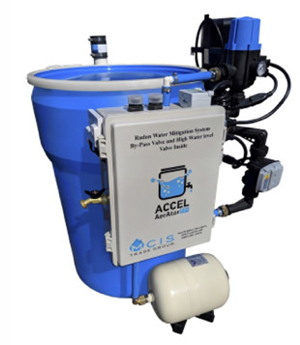
Radon being soluble in water enters the underground water supply easily. All ground water has radon and some have very high concentrations. Radon that enters a home through the water supply escapes from the water when flushed, heated or sprayed in showers, dishwashers and clothes washers.
In homes with a private well, radon entering from the water can raise the radon in air to very high levels and breathing this air for long periods can increase the risk of lung cancer.
Radon concentrations commonly are much higher in water than in air. As a general rule, a measurement of 10,000 pCi/L radon in well water will contribute to 1 pCi/L throughout the household air
Radon being soluble in water enters the underground water supply easily. All ground water has radon and some have very high concentrations. Radon that enters a home through the water supply escapes from the water when flushed, heated or sprayed in showers, dishwashers and clothes washers. In homes with a private well, radon entering from the water can raise the radon in air to very high levels and breathing this air for long periods can increase the risk of lung cancer.
Radon concentrations commonly are much higher in water than in air. As a general rule, a measurement of 10,000 pCi/L radon in well water will contribute to 1 pCi/L throughout the household air
- Calgon F-400 Carbon Radon, PFOS, PFAS and VOC Mitigation SystemSKU#: twin-carbon-radon
- Model # : twin-carbon
- Accel AerAtor E99 Radon Removal SystemSKU#: accel-aerator-e99
- Model # : accel-aerator-e99
- F-400 Aqua Sorb Carbon System with 10" x54" tanksSKU#: single-F400-10x54
- Model # : F-400 Single Tank Down Flow System 10X54
-
- Model # : 433-S50X

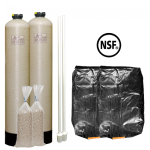

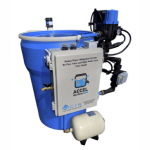
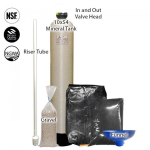
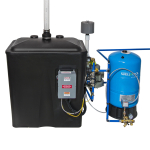
Validate your login